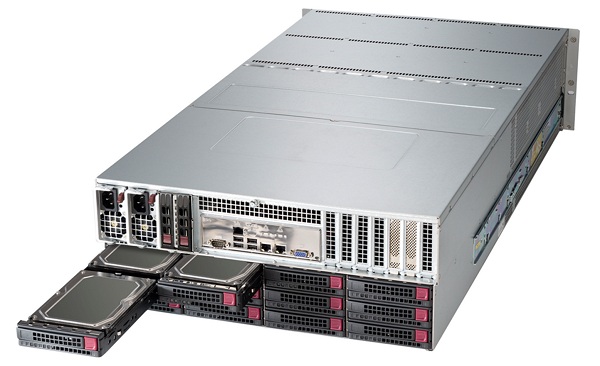NVMe hardware raid now available at XLHost

PCIe NVMe SSDs have been available for enterprise/datacenter deployments for several years. With the performance of the typical NVMe SSD being ten to fifteen times greater than the average SATA SSD it has been very tempting to deploy these drives for applications that require a lot of IOPs, storage throughput, or both. Up until now using NVMe drives in servers has come with compromises related to resiliency and overall performance. While the drives themselves have redundant NAND flash memory, the drives could still fail in a number of ways which could impact the availability of applications.
There were two primary solutions to these resiliency issues. The first solution was to scale out the application to multiple servers. Clustering servers is a great idea (especially if you are using virtualization) for performance and availability reasons. The biggest downsides to clustering are the costs associated with duplicating servers, storage, networking, and software licenses etc.
The second solution was to use software RAID. Software RAID (built into modern operating systems) uses the server's CPU to calculate parity and prevent a disaster in the event of disk failure. Depending on what CPU/platform you are using as well as the volume of IO we have observed as much as a 60% increase in CPU utilization just for calculating parity (meaning the IO operations required to carry out the duplication of data) So in an extreme case your application would only be able to use 40% of the CPU.
Today we are excited to announce our first ever server (built on the Dell PowerEdge R750) that offers hardware RAID controllers for NVMe SSDs. I mention controllers (plural) specifically because our first offering in this space actually has TWO Dell PERC H755N (Broadcom RAID-on-chip, SAS3916) controllers. Each controller connects to 8 2.5" (U2) ports on the front of the chassis. The reason we used two controllers in this server is because the drives are so fast that 8 of them can overwhelm the available bandwidth of PCIe Gen4. So spreading the drives across two controllers allows our customers to use 16 NVMe SSDs.
The downside of course is the increased cost of the drives (and the controllers) but we believe that the 15x performance benefits completely outweigh the cost and creates opportunities to further consolidate server fleets. Pricing on NAND flash continues to fall and the prices of drives will fall with them. Also SSD manufacturers will pivot completely away from SATA over the next few years. Another advantage of hardware RAID (and the ubiquity of Dell DRAC/OMSA management) means painless integration into your deployment pipelines and monitoring systems.
XLHost plans to announce multiple offerings using NVMe hardware RAID throughout 2021. These solutions will all offer different capabilities at different price points.
If there is a specific build that would work better for your business please  !
!

